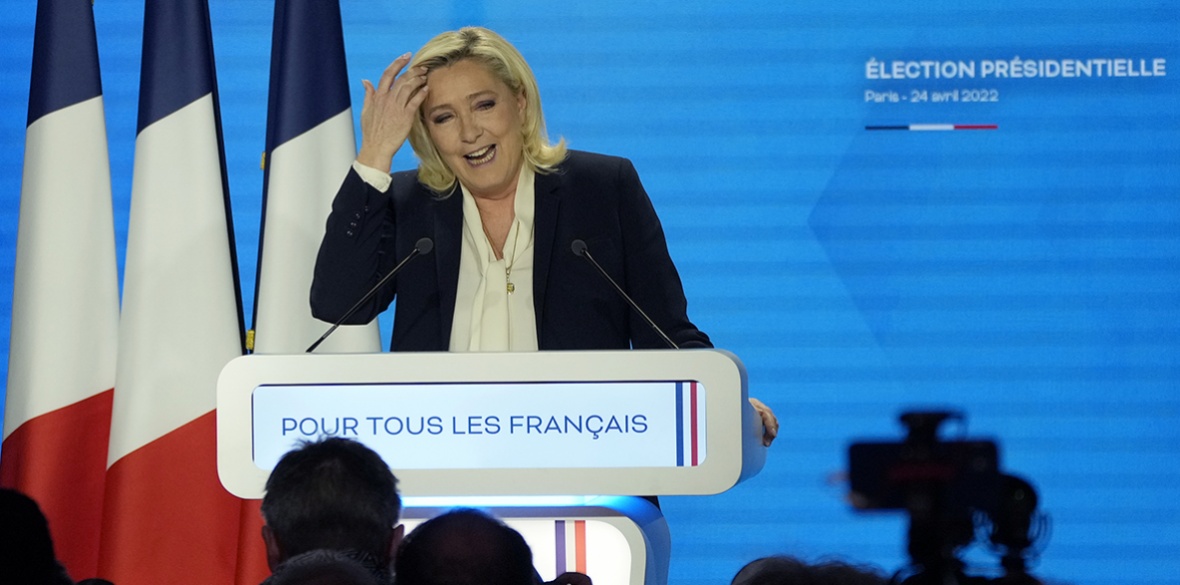SELDOM have the political options of a system in crisis have been manifest in such impoverished form as in the second round of the French presidential election.
The re-elected victor, Emmanuel Macron, has ruled for five years as an authoritarian neoliberal.
His “neither right nor left” rhetoric of 2017 was replaced in practice by government in the interests of the rich, enforced brutally as required.
There is no reason to believe a new Macron will emerge now. His post-election pledge to be “president for all” is likely as insincere as it is anyway meaningless, as a generation in Britain raised on the rhetoric of Tony Blair will realise.
Macron’s defeated challenger, Marine Le Pen, secured over 42 per cent of the vote on a populist nationalist platform marked by overt racism, as in the planned prohibition on Muslim women wearing the hijab in public.
“Not as fascist as my father” was her calling card — that this pitch won such significant support is of no comfort at all. She remains a way off winning the presidency, but every election brings her party closer.
Macron’s re-election owed much to support he will have secured from the defeated first-round candidates of the left, Jean-Luc Melenchon above all. For many, keeping the far right out of power was clearly the priority.
The first-round vote showed France split roughly three ways between neoliberal centrism, the national populism of Le Pen and Eric Zemmour, and the left, much of it radical, of Melenchon, the Communist Party and the Greens.
In this setting, the forthcoming parliamentary elections are crucial. A national assembly that can constitute a check on Macron and a platform for social advance is critical. Discussions on the left as to how this can best be achieved will hopefully advance positively.
The abstention rate in the second round may have reached 28 per cent of the electorate, the lowest turnout since 1969 when there were likewise two right-wing candidates as the final choice, and the Communist Party urged its then very substantial electorate to abstain.
It is clear that democracy is ill-served when it is shrunk to such unappealing options, with no agenda for progressive change on offer.
Like Jeremy Corbyn here and Bernie Sanders in the US, Melenchon has proved that there is a large and growing audience for a challenge to the system and a radical reordering of social priorities. However, he now has to work to establish the same degree of unity as the British electoral system tends to impose.
Moreover, Le Pen’s unprecedented support indicates that right-wing populism can also play successfully on people’s discontents, even though she would leave wealth and power in exactly the same hands as hold them at present.
There is no simple read-over across the Channel to British politics. Here the Tory Party unites both populism and neoliberalism within itself in an admixture as unstable as Boris Johnson’s grip on office.
The Labour Party is also once again moving towards the sickly embrace of neoliberal centrism at the insistent prodding of Blairite holdovers like Peter Mandelson.
Nor could either party conceivably be described as anti-authoritarian under their present leaders, except insofar as Johnson does not regard any authority as applying to himself personally.
Yet the same voter disengagement noticeable in France is a danger here too. Johnson’s cynical clinging to office despite having had his collar felt will alienate some, and Keir Starmer’s junking of everything that made Labour different and interesting in the recent past will likely turn off many more, above all among the young. Centrism is a crumbling rampart against the far right.











